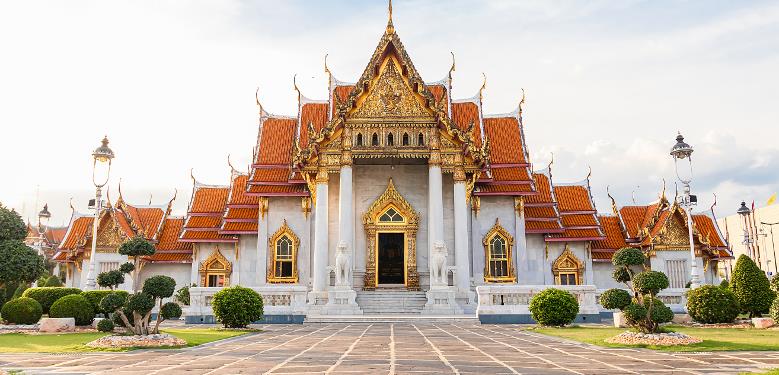
Major developments confirmed a sharp decline in Chinese tourists to Thailand.
The first blow came from a duty-free giant under pressure.
Duty-free retailer King Power has requested to terminate its concession contracts early at five major airports—Suvarnabhumi, Don Mueang, Phuket, Chiang Mai, and Hat Yai—according to a letter sent to Airports of Thailand (AOT).
The official reasons cited include declining tourist arrivals, sluggish sales, and policy changes suspending duty-free purchases upon arrival. But at the core lies an undeniable issue: Chinese tourists are not returning.
AOT itself is facing mounting challenges. Its share price has plunged over 50% this year, wiping out more than USD 14.2 billion in market value, making it the worst performer on the MSCI Asia Pacific Index.
At its peak in 2018, AOT had a market cap of USD 31 billion, ranking as the world’s most valuable airport operator.
Lurking behind the decline is persistent safety anxiety.
Since the kidnapping of Chinese actor Xing Wang in Thailand earlier this year, the question “Is Thailand safe?” has repeatedly gone viral on Chinese social media, discouraging many prospective travelers.
Bloomberg Intelligence analyst Denise Wong put it bluntly: “Unless Chinese demand returns, Thailand’s tourism sector will continue to slide.”
In May, Teerasil Tapen, Deputy Governor of the Tourism Authority of Thailand, acknowledged that Chinese tourist arrivals had dropped 30% year-on-year in the first four months of 2025, prompting a reassessment of the country’s target of 37.5 million international arrivals.
As of June 8, Chinese tourist arrivals reached only 2.029 million, with Malaysia surpassing China for the first time, pushing China into second place.

